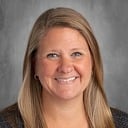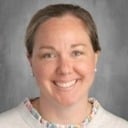Early Childhood
-
Welcome Parents!
-
Thank you for joining the community at St. William's Catholic School. We have a team of talented, committed teachers who create a wonderful learning experience for their students. Meet our teachers:- Nursery - Mrs. Annunziata
- Nursery - Ms. Walsh
- Pre-K - Mrs. McSherry
- Pre-K - Mrs. Gioglio
New to St. William? Visit Our School
-
-
-
-
 kannunziata5651stwilliamtheabbot.netNursery
kannunziata5651stwilliamtheabbot.netNursery -
 mwalsh5651stwilliamtheabbot.netNursery
mwalsh5651stwilliamtheabbot.netNursery -
 dmcsherry5651stwilliamtheabbot.netPre-Kindergarten
dmcsherry5651stwilliamtheabbot.netPre-Kindergarten -
 Marion Giogliomgioglio5651stwilliamtheabbot.netPre-Kindergarten
Marion Giogliomgioglio5651stwilliamtheabbot.netPre-Kindergarten -
 Katherine Spitzkspitz5651stwilliamtheabbot.netKindergarten
Katherine Spitzkspitz5651stwilliamtheabbot.netKindergarten -
 Kristen Hayeskhayes5651stwilliamtheabbot.netKindergarten
Kristen Hayeskhayes5651stwilliamtheabbot.netKindergarten
-
-
-
Early Childhood Curriculums
-
-
The goal of our Nursery program is to instill in our youngest students a sense of discovery and awareness of God’s love and the world around them. Students will learn to play and share with others, coordinate actions and develop skills, and build positive attitudes about themselves and their relationships with others.
Our program includes a balance of quiet and busy activities including a period of “free play” where the children may choose their own activities. Self-expression and creativity are encouraged through the use of building blocks, paints, crayons, and play-doh. Students develop cognitive skills as they work with table games, puzzles, beads, and other manipulatives. Gross motor skills are addressed through movement activities, and outdoor play. During Circle Time, alphabet awareness, number concepts, colors, shapes, and seasonal and holiday activities are introduced and reinforced.
Language Skills
Follow simple instructions
Ask and answer questions
Describe experiences and events
Describe the functions of objects
Acquire basic knowledge of self and culture
Respond to differences about similarities and differences of shapes and objects
Develop a vocabulary for expressing observations
Listen and respond to stories
Alphabet Awareness
Sequencing
Math and Sensory-Perceptual Skills
Sort, match, and name a variety of colors, shapes, and sizes
Classify pictures by categories
Recognize similarities and differences in a variety of pictures
Retell the events of a story in sequence
Comparing rote counting and rational counting
Motor Skills
Perform hopping and jumping tasks
Move expressively to music
Follow a walking pattern
Throw and catch a large ball
Reproduce a rhythm pattern
Manipulate equipment
Discriminate by touching various textures, shapes, and sizes
String beads
Interpersonal Skills
Cooperate with others in the classroom by following rules, helping to establish rules, and by learning to modify rules when necessary
Share and take turns
Participate in classroom discussions and activities
Help with tasks such as clean-up
Express feelings related to events as they arise in the classroom
Develop positive self-esteem
Attend to tasks for increasingly longer periods of time
Work independently
-
-
-
Religion
Students learn about the wonder of God and the joy of our Catholic Faith. Our religion book, Discovering God’s World, teaches students about God’s gifts of people, our world, ourselves, and our families. Students participate in activities that help them to realize that life is special and new life is all around them. They learn to make the Sign of the Cross, pray the Our Father and Hail Mary. They read stories and participate in activities that teach religious values. In addition, Seeds, the magazine, is utilized so our students can learn about Sunday’s Gospel each week.
Reading
Our Reading Series is an interdisciplinary program designed for our Pre-K students. Students take part in a weekly book study, incorporating early literacy skills in vocabulary, story elements, retelling, problem/ solution, book handling, and roles of the author and illustrator. This is followed by an assessment of their progress.
Fundations and Language Arts
Students develop oral language and early literacy skills which include listening, speaking, writing, reading, thinking, media, and language skills. The Fundations program focuses on the alphabet, phonological awareness, and letter formation. Students also learn to recite the alphabet; identify upper and lower case letters; consonant sounds; recognize/print first name. Additional skills include answering questions about a story; and identifying sequencing of pictures and events within a story. Students are engaged in higher-order thinking skills such as cause/effect and prediction.
Handwriting
Our Universal Handwriting workbook focuses on visual discrimination, eye-hand coordination and basic skills for writing readiness. Correct grasp is taught to children as they develop their fine motor muscles. Students learn to use journals, beginning with pictures and later developing labels/writing.
Math
Students learn to recognize basic colors, shapes, and numbers 1-20. Students also learn patterns; sorting by color, size, and shapes; and graphing. Basic addition and subtraction are introduced as well. Students learn to use several manipulatives to help develop conceptual mathematical ideas.
Social Studies
Students engage in seasonal activities to understand the meaning of the various seasons. They also learn about our country, the president, our community, holidays, and traditions. The Pledge of Allegiance is recited in the classroom every day.
Science
Students learn about themselves and the changing world around them. They identify body parts, learn about their senses, emotions and good health habits.
Art
Students are given the opportunity for creative expression. They create seasonal crafts using different media such as crayons, markers, colored pencils, paint, and watercolors. Lacing and beading are also activities used to develop fine motor skills.
Music
Students participate in singing songs, finger play, dramatic play, dance, and movement to music.
Technology
Newline Boards and 1:1 iPads are utilized to help animate and create interactive lessons in all disciplines.
-
-
-
Kindergarten is a year of spiritual, academic, and social growth!
ReligionReligion and the practice of our faith is what makes us unique as a Catholic School. Our students grow, share, and celebrate God’s love for them every day! Our Kindergarteners start and end each day with prayer, and attend monthly school Liturgies with their 8th grade Mass buddies. The Saints, the Church Seasons, the Liturgical Year and Holy Days are emphasized throughout the year.
English Language Arts
Kindergarten launches with the introduction of a variety of genres through engaging books. Students begin with identifying letters and the letter sounds through the Fundations phonics program, and increase their independence to identifying words and sentences within reading and writing. Phonological and phonemic awareness skills such as rhyming, syllabication and breaking a word into its sounds is done on a daily basis using Heggerty. The students engage in listening to and reading text and learn decoding, fluency, and comprehension skills. With teacher guidance, they begin to learn how to retell a story and include details, main events, and setting. Students also identify the author, illustrator and text features. Since Kindergarteners are introduced to such a wide variety of written materials, they begin to compare and contrast across multiple texts. As writers, the Kindergarten curriculum offers opportunities to develop students’ ability to communicate clearly through talking, drawing, and writing. With prompting and support, students are able to state an opinion or preference, compose an informative text with information about a topic of interest, and narrate an experience in writing.
MathematicsKindergarten mathematics is about representing, relating, and operating on whole numbers, and describing shapes and space. Students will participate in hands-on experiences to learn and reinforce number sense, counting to 100, addition, subtraction, measurement and data, and problem-solving utilizing the Next Generation Learning Standards and our math curriculum HMH Into Math.
Social Studies
In Kindergarten, students study “Self and Others” while exploring various cultures, communities, and families. Students will learn about similarities and differences between children, families, and communities and about holidays, symbols and traditions that unite us as Americans and as global citizens. Students learn about respect for others, and rights and responsibilities of individuals.
Science
Our Kindergarten students use their five senses to observe plants, animals, insects, the seasons/weather, and the environment. The children are given many hands-on opportunities to investigate, observe, and record their findings. The students will learn about the different properties of matter as they examine materials such as paper, wood, metal, cloth, and plastic. Our Kindergarteners are also given opportunities to learn about force and motion, including lessons on pushes and pulls, gravity, simple machines, and magnets.
Technology
Newline boards are utilized daily in the classroom, and each Kindergartener has his/her own Chromebook. Our students work with programs that enhance their reading, math, and keyboard skills, including iReady. iReady provides an individualized path for each child in order to meet the children where they are and help them grow in reading and mathematics.
-
-

